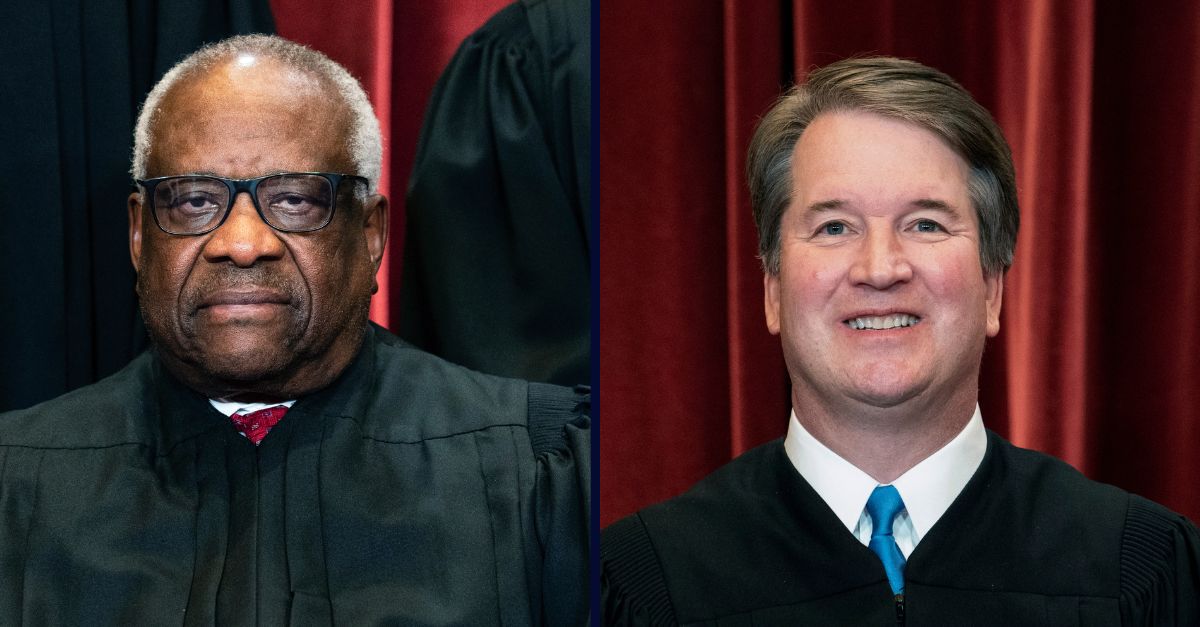‘Substantial Confusion’: Thomas Chides Court for ‘Advisory Opinion’ in Truck Driver Suit
The U.S. Supreme Court recently ruled in favor of Douglas Horn, a commercial truck driver who was fired after testing positive for THC, the active ingredient in marijuana. Horn, who claimed he unknowingly ingested THC through a CBD product, filed a lawsuit under federal racketeering law. The ruling, which addressed a legal split over the limitations of racketeering claims, has sparked controversy, with Justice Clarence Thomas notably dissenting.
The Legal Battle: Horn’s Lawsuit Against Medical Marijuana
Douglas Horn, a long-haul truck driver, lost his job, insurance, and pension benefits after failing a routine drug test. He attributed the positive THC result to his use of a CBD-based product called Dixie X, which was marketed as being free of THC. Horn took the product to relieve chronic pain, and he argued that the product’s misleading labeling led to economic harm when he was fired. Horn filed a lawsuit against Medical Marijuana, the makers of Dixie X, under the Racketeer Influenced and Corrupt Organizations Act (RICO). He accused the company of mail and wire fraud for falsely advertising that their product was THC-free. RICO, a federal law originally aimed at combating organized crime, allows individuals to seek triple damages if their business or property is harmed. However, RICO does not cover personal injuries, which was a key point of contention in Horn’s case.

The Supreme Court’s Majority Opinion
In a 5-4 decision, the Supreme Court sided with Horn. Justice Amy Coney Barrett, writing for the majority, argued that the most natural interpretation of the law supported Horn’s claim. Barrett emphasized that the court was not addressing whether Horn suffered a personal injury but was focused on whether his economic harm fell under RICO’s guidelines. Barrett also pointed out that the RICO statute had evolved, shifting from its original purpose of targeting organized crime to being used in cases involving regular businesses. The court’s decision reflected this broader application of RICO, which now encompasses a range of claims beyond its original scope. Justices Sonia Sotomayor, Elena Kagan, Neil Gorsuch, and Ketanji Brown Jackson joined Barrett’s opinion. Despite this, the ruling faced strong opposition from Justice Clarence Thomas.
Justice Thomas’ Dissent and Concerns
Justice Thomas dissented, arguing that the Court should never have reviewed the case. He noted that RICO explicitly forbids lawsuits based on personal injuries, which he believed was a crucial aspect of the case. According to Thomas, Horn’s case raised the question of whether economic losses resulting from personal injuries could be classified as injuries to business or property for RICO purposes. However, since Horn had initially denied suffering a personal injury, Thomas argued that the court could not decide the case without addressing whether Horn had suffered such an injury in the first place.
Thomas further criticized the majority’s decision as potentially issuing an “advisory opinion,” pointing out that it was premature to resolve the question without a clear understanding of whether personal injury was involved. He suggested that the case was poorly suited for such a ruling and that the court should have waited for a better case to address the issue comprehensively.
The Impact of the Ruling
The ruling has raised concerns about the potential for confusion and future litigation. Justice Brett Kavanaugh, joined by Chief Justice John Roberts and Justice Samuel Alito, expressed similar concerns, warning that the decision would likely lead to significant legal uncertainty in future cases involving RICO. Thomas, in his dissent, urged the Court to be more cautious in making decisions on complex legal questions, advocating for a more measured approach and suggesting that a better case might provide clearer guidance.


Comments are closed, but trackbacks and pingbacks are open.